[R-slider id=”14″]
The 27th annual RESER (European Association for REsearch on SERvices) conference was held from 7 to 9 September in Bilbao, Spain.
Text & Photo © J. Bröchner, JE Nilsson, CM Cordeiro 2017
The theme for this year’s 27th RESER conference on service research is the crucial role of services in business and cities competitiveness. The conference was held between 7 to 9 September 2017 at the Euskalduna Conference Centre, hosted in collaboration with Mondragon Univeristy of the Mondragon Corporation in Bilbao, Basque Country, Spain. The core theme was structured around 7 topics: city service, servitization, service ecosystems, service innovation and international perspectives, value creation and methodological challenges in service studies. A core value of RESER conferences, that could also be observed in this context, is to encourage interdisciplinary perspectives and interaction of scholars across disciplines in order to address complexity. It is always this element of the plurality of perspectives that I enjoy most when meeting with the RESER community of practitioners and scholars. There were 104 listed participants for presentation over three parallel sessions. Four social events were scheduled, one per day beginning 6 September with the doctoral colloquium meet and concluding with an interesting tour of the Guggenheim Museum Bilbao. The conference days pendulumed between rain and sunshine. On the evening of the gala dinner however, conference participants were treated to a spectacular 360 degrees view of the city of Bilbao from Torre Iberdrola, located on the 24th floor of the Iberdrola Tower. RESER 2018 is set to be held from 20-22 September 2018 in Gothenburg, Sweden.
Cheryl Cordeiro, standing outside the ”E” Auditory of the Euskalduna Conference Centre and Concert Hall.
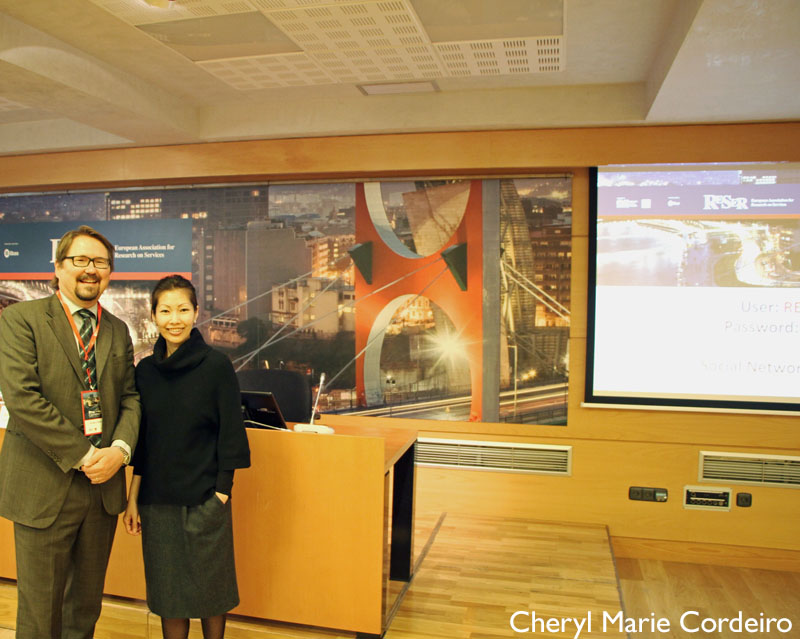
At the RESER 2017 opening and opening keynote session. L-R: Patrik Ström, President of RESER Association, Associate Professor of Economic Geography and Head of the Business Administration Department at the School of Business, Economics and Law at the University of Gothenburg, Sweden; Cheryl Cordeiro, RJ Flexit Scholar and Research Fellow at the Centre of International Business Studies (CIBS), at the School of Business, Economics and Law at the University of Gothenburg, Sweden.
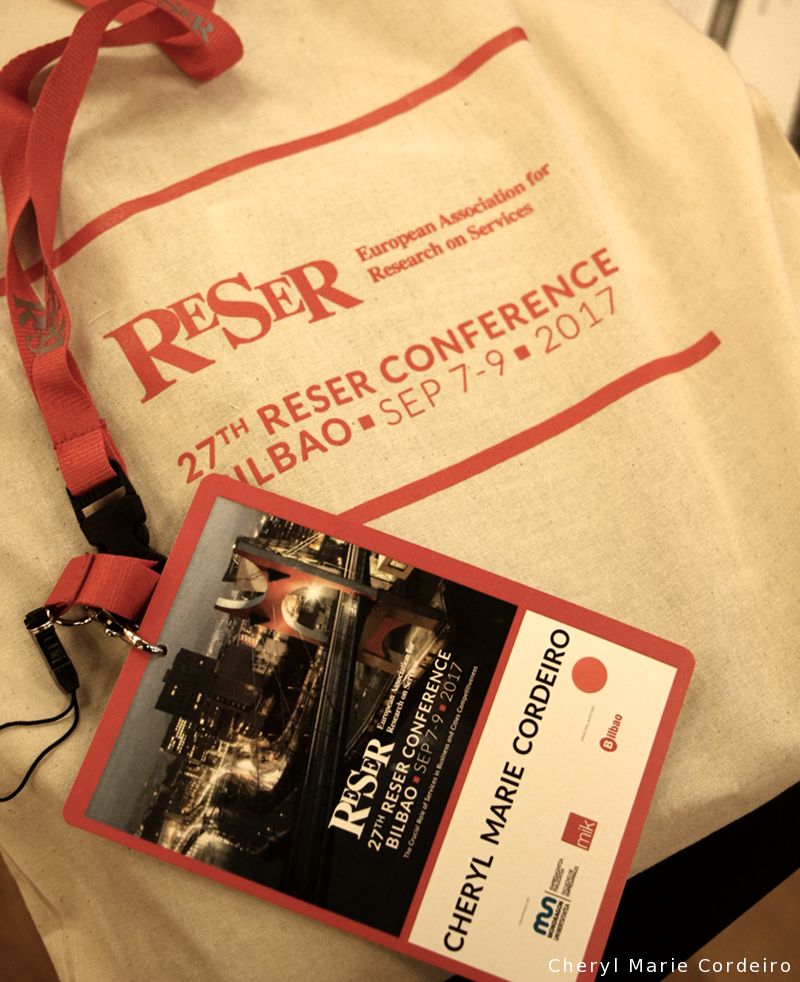
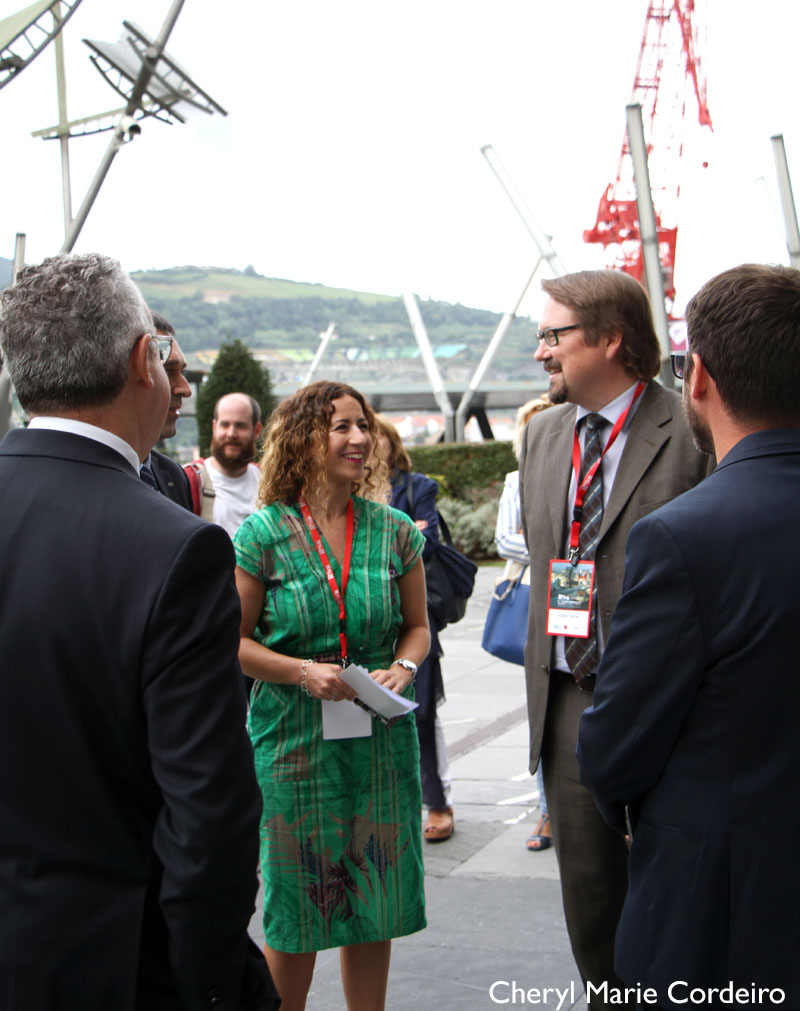
Estibaliz Hernandez, Prfessor and Business Degree Director, Mondragon University, Spain, with Patrik Ström, University of Gothenburg, Sweden.
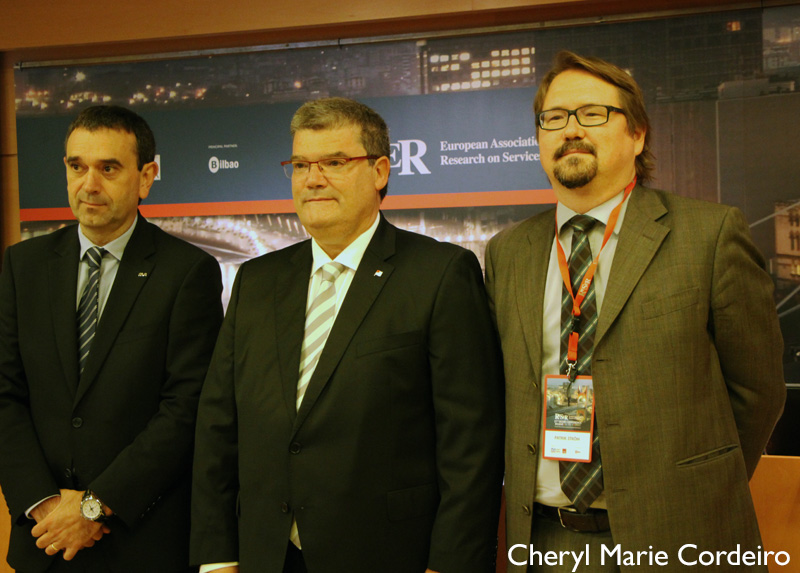
L-R: Vicente Atxa, Dean of the Business Faculty of Mondragon University; Juan Mari Aburton, Mayor of Bilbao, Basque Country Spain and Patrik Stöm, President of RESER.
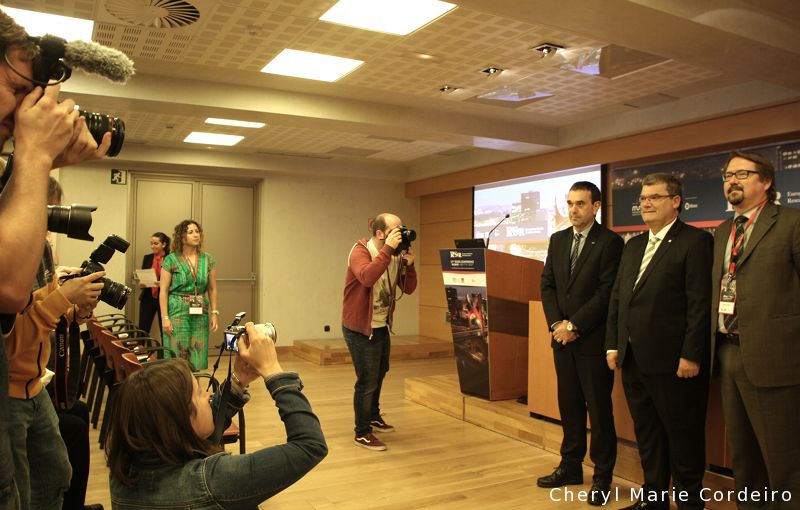
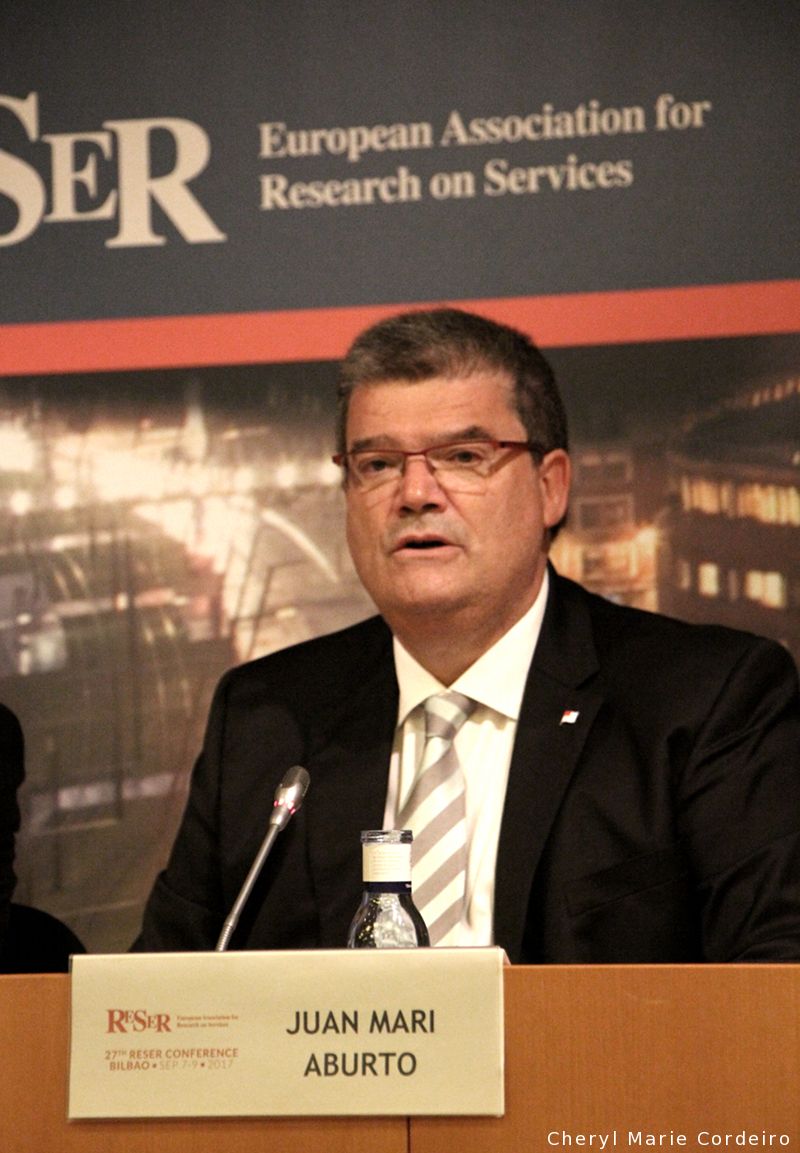
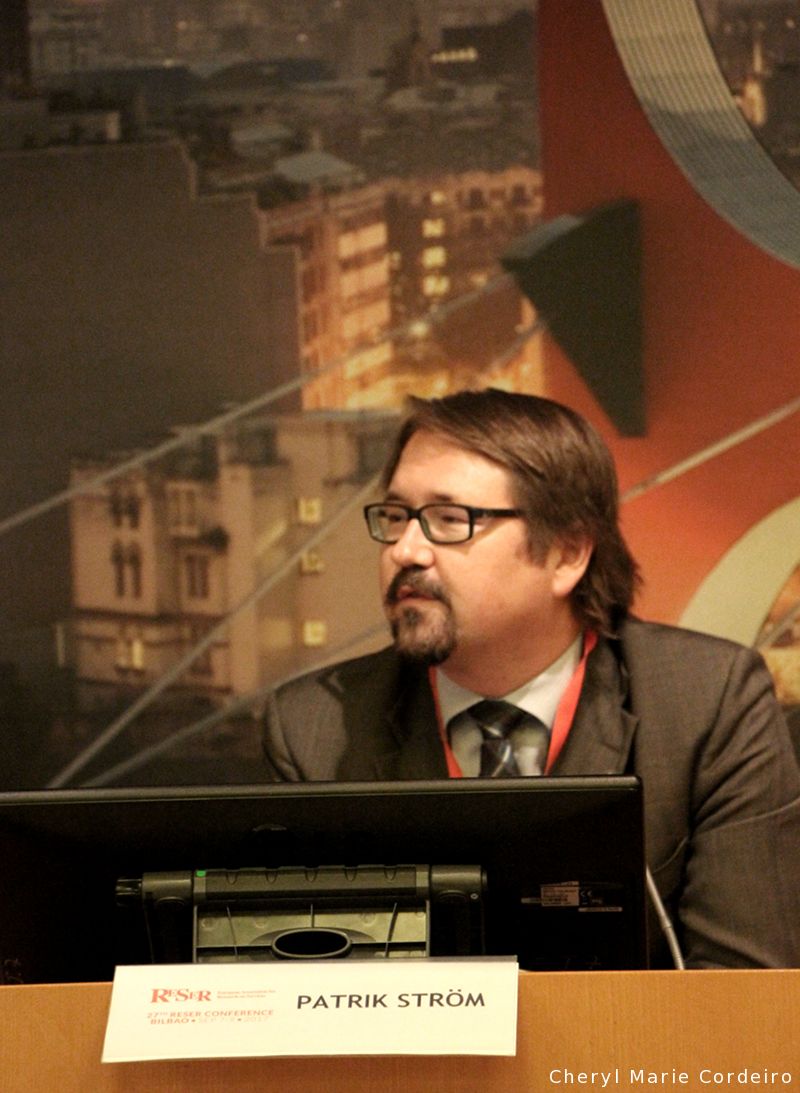
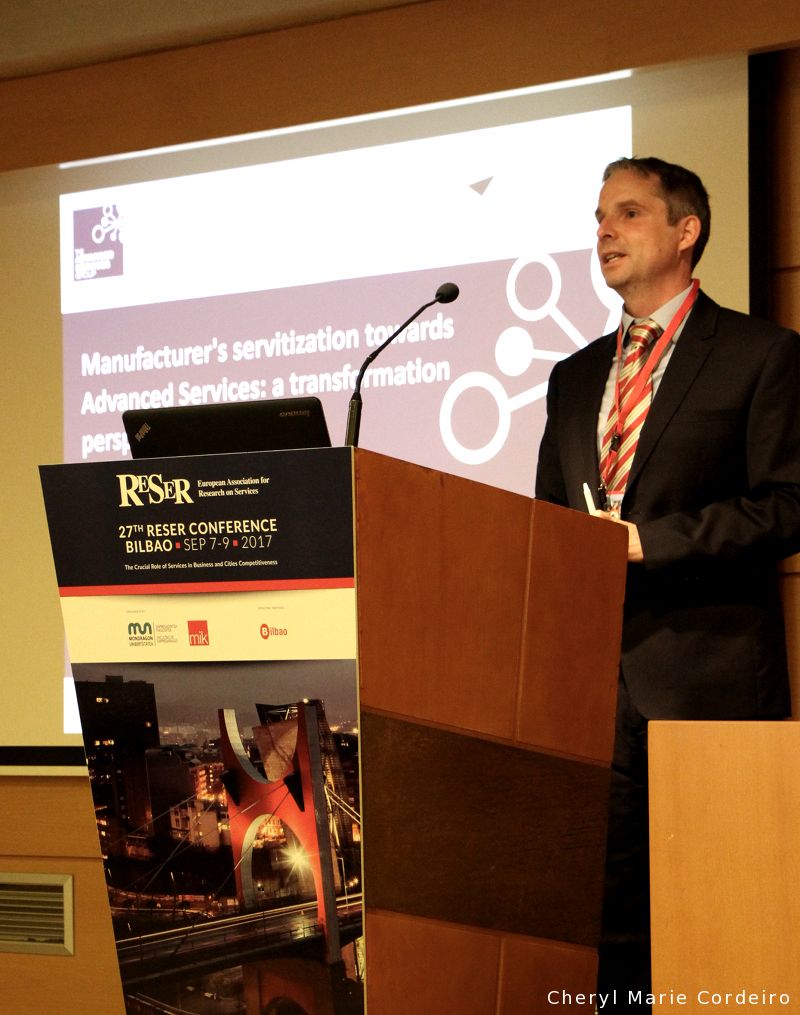
RESER keynote speaker, Andreas Schroeder of Aston Business School, Birmingham, UK. The topic of the speech is entitled, ”Manufacturer’s servitization towards Advanced Services: A transformative perspective”.
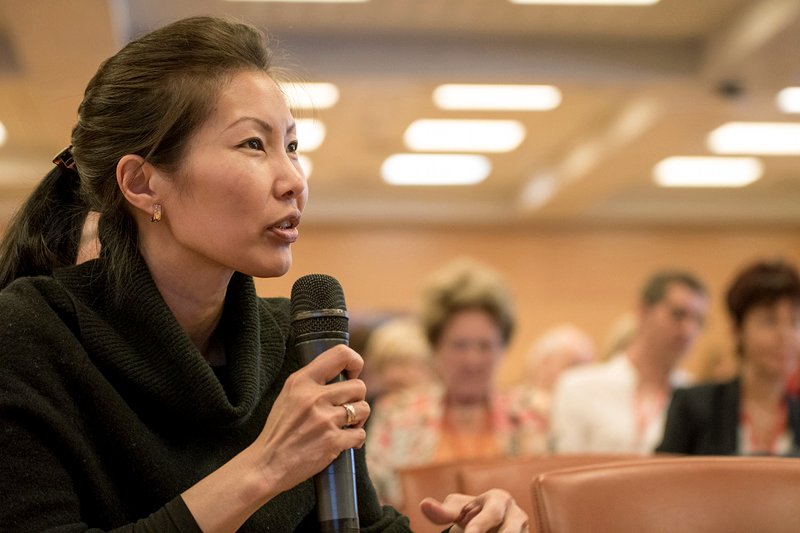
Q&A session. Photo by Mondragon University Business Faculty. View: RESER 2017 photo album by Mondragon University.
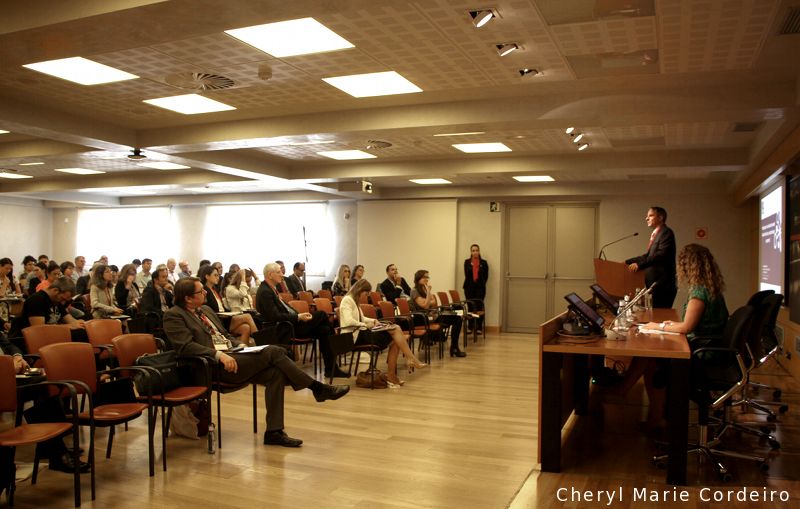
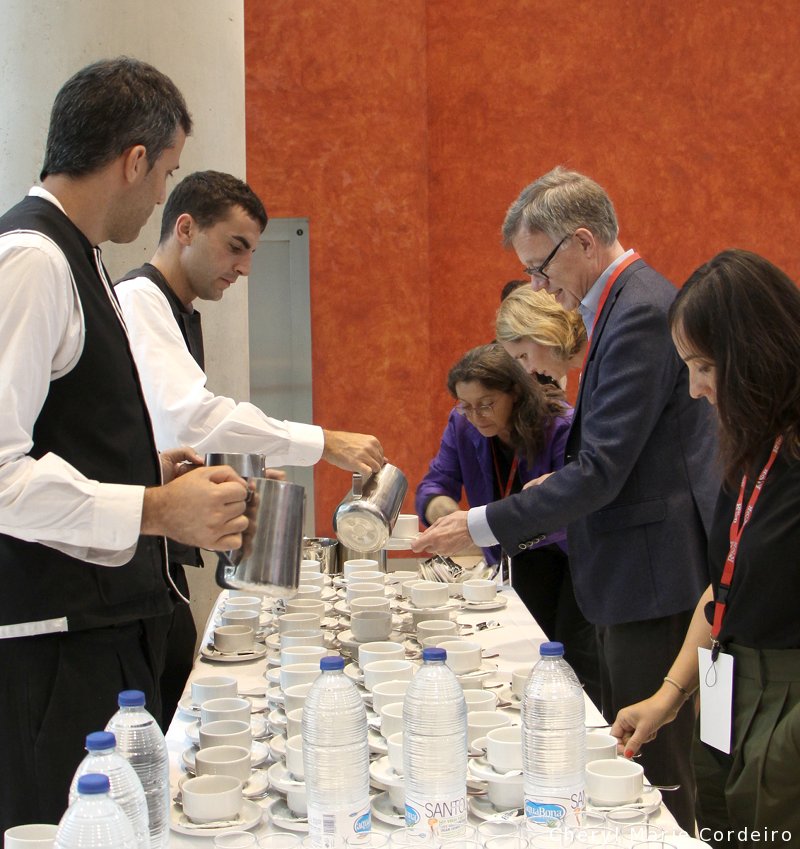
A RESER 2017 conference coffee break.
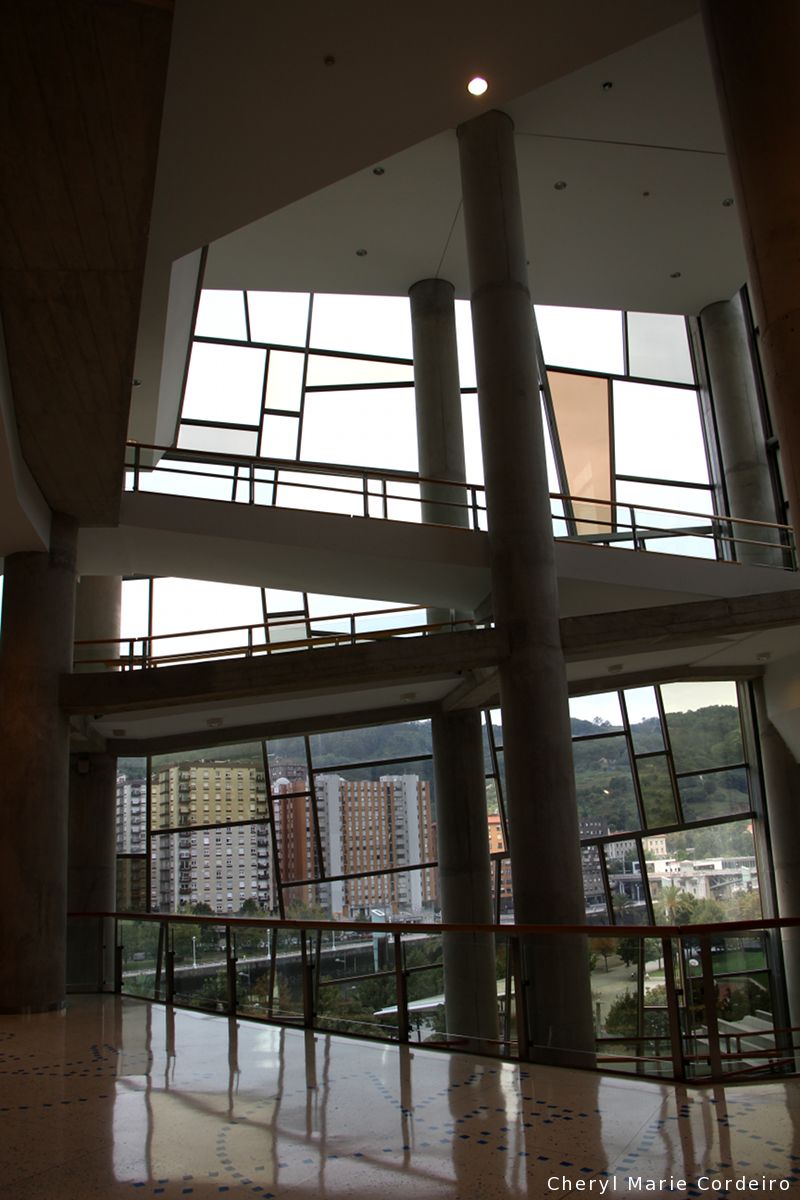
Looking out from level two of the Euskalduna Conference Centre and Concert Hall. The building is a modern work of art. Designed by architects Federico Soriano and Dolores Palacios to resemble a vessel permenantly under construction as tribute to now defunct shipyard where the building stands, one can hardly miss the numerous crossings of stairways and vibrant blue of lapis lazuli as theme colour throughout the building. This building is certainly different in design than from Frank Gehry’s Guggenheim Museum Bilbao, although in my view, carrying much of the same vibe of a well balanced combination of artistic flair and function towards the purposes of being host location for larger events and theatre shows.
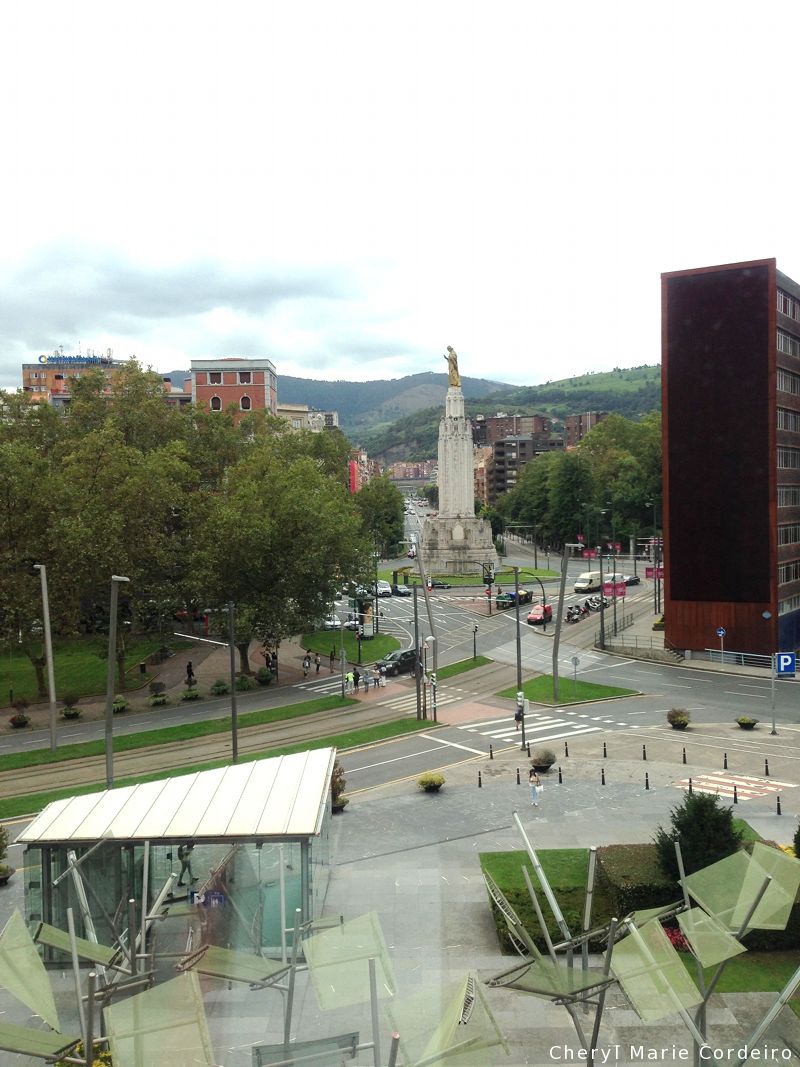
A view towards Euskadi Plaza from the third level of the Euskalduna Conference Centre and Concert Hall, framed by the lush green undulating slopes of the region.
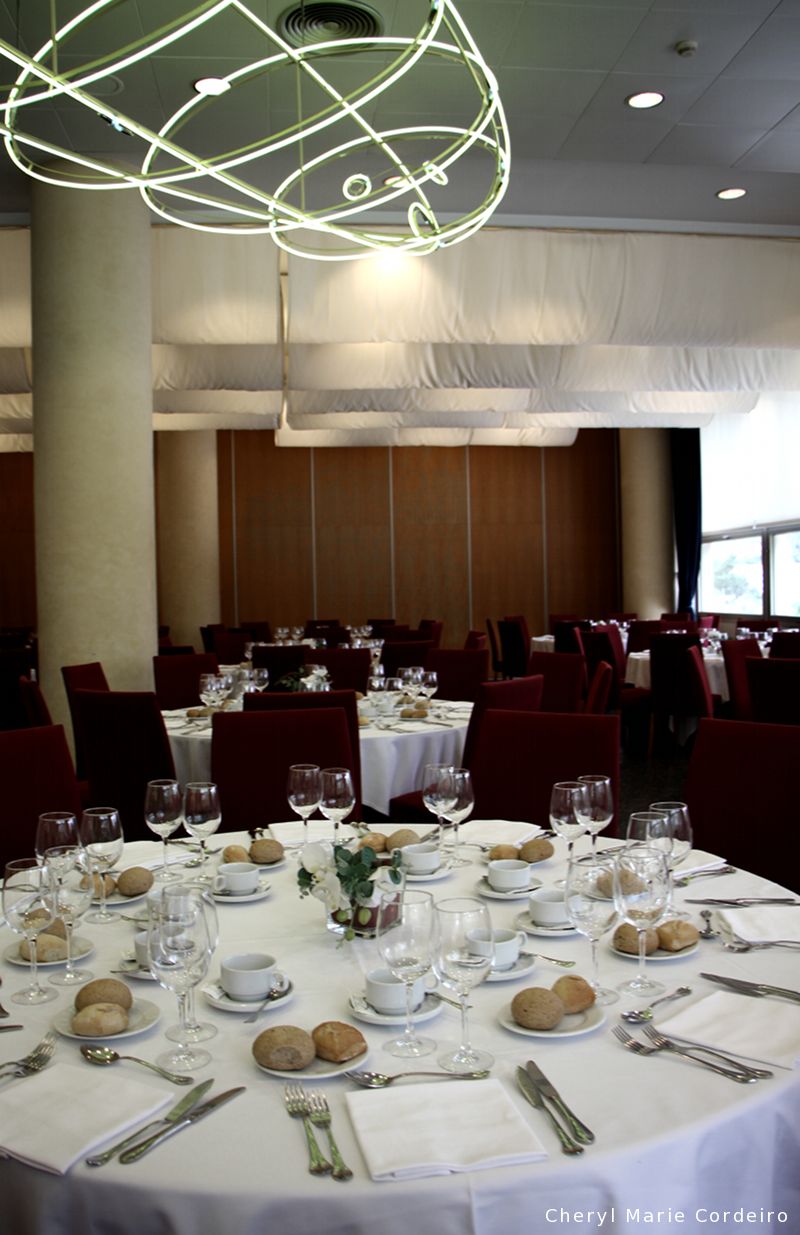
Dining room the Euskalduna Conference Centre and Concert Hall. Lunch was an impressive three course menu with two different types of wines. Basque cuisine is unique in its presentation and style of preparation, something not to be missed when visiting this region.
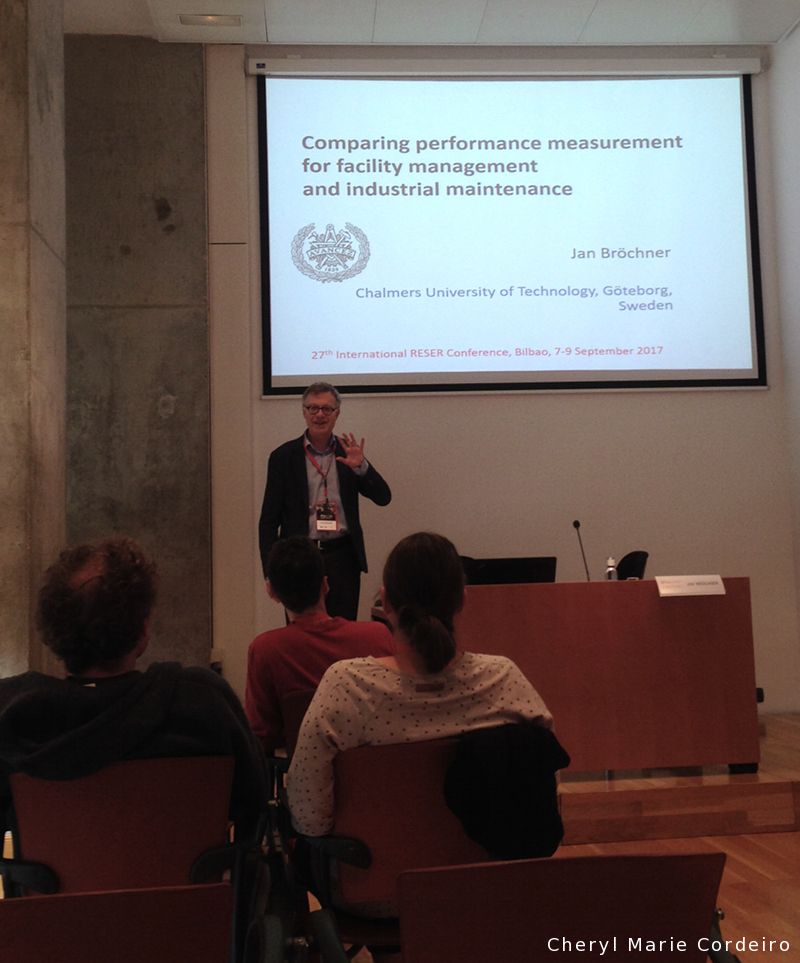
Jan Bröchner, Professor in Technology Management and Economics from Chalmers University of Technology, Sweden, presenting at a session.
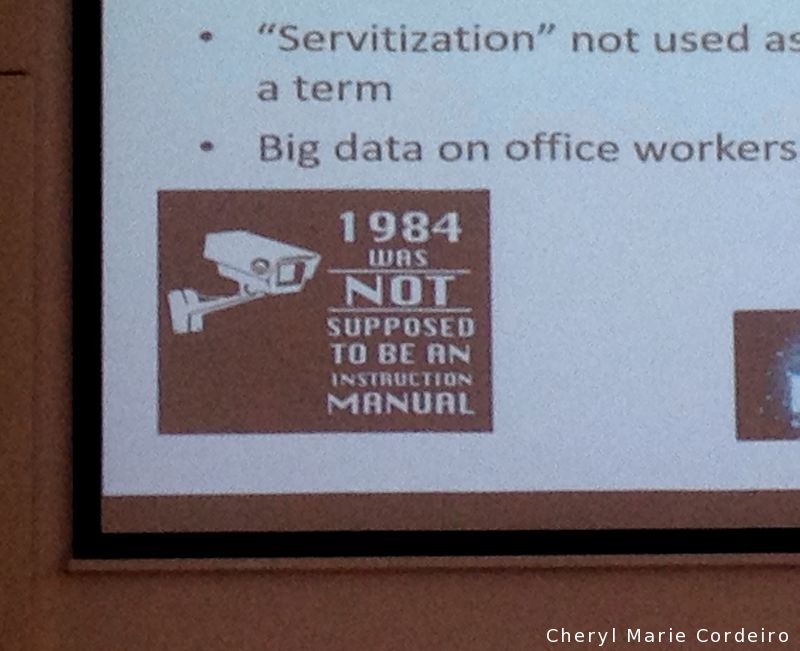
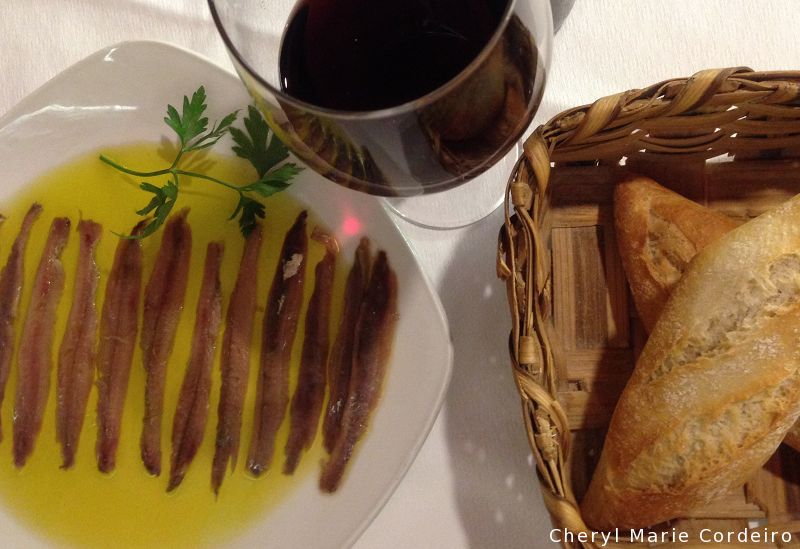
A sample of Basque culinary cuisine. Anchovies soaked in olive oil of the region, a Spanish red wine, and bread.
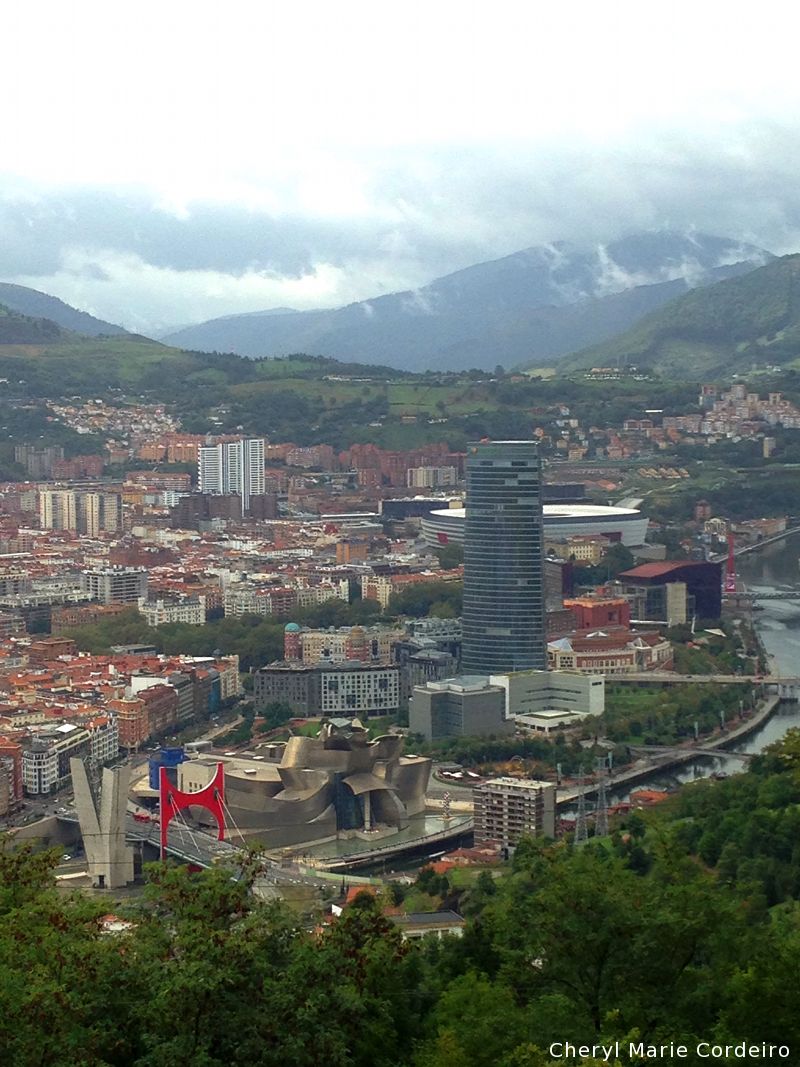
A partial aerial view of the city of Bilbao, Basque Country, Spain from the vantage point of Mount Artxanda. Far from the grey of the Basque Country industrial boom of the iron and steel industry that had less than desirable socio-environmental consequences in the early to mid 1900s, the grey of the picture is due to rain clouds hovering over the city, typical weather for the these days greener region in early autumn. Looking at this picture, it is perhaps difficult to reconcile that Bilbao was founded as a villa in 1300 that turned into a commercial villa after the establishment of its consulate in 1511. From the 1800s, Bilbao has been an industrialized city [1]. In sight in the lower left quadrant of the photo, is the distinct red sculpture by Daniel Buren, Arcos Rojos (2007) of the La Salve Bridge near the Guggenheim Museum Bilbao. The office skyscraper is the Iberdrola Tower, built between 2009 and 2012. The building is a forty storey glass facade structure that rises 165 metres above ground. It is the tallest buildng in Basque Country Spain and makes quite a landmark for Bilbao. In partial view too, is the Estuary of Bilbao, lying at the intersections of the Nervión river that runs through the city in a north-south direction opening into the Cantabrian Sea, Bay of Biscay. The city has to a deep extent, founded its historical identity and purpose in its estuary waters.
References
[1] Sainz, M. (2012). (Re)Building an Image for a City: Is A Landmark Enough? Bilbao and the Guggenheim Museum, 10 Years Together. Journal of Applied Social Psychology, 42(1), 100-132.